Best Rust Programming Books to Buy in February 2026
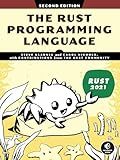
The Rust Programming Language, 2nd Edition


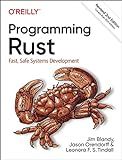
Programming Rust: Fast, Safe Systems Development


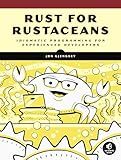
Rust for Rustaceans: Idiomatic Programming for Experienced Developers


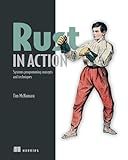
Rust in Action


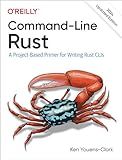
Command-Line Rust: A Project-Based Primer for Writing Rust CLIs


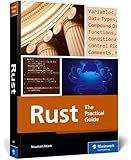
Rust Programming: A Practical Guide to Fast, Efficient, and Safe Code with Ownership, Concurrency, and Web Programming (Rheinwerk Computing)


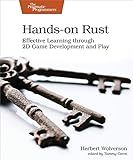
Hands-on Rust: Effective Learning through 2D Game Development and Play


In Rust, you can use the ceil() function to round a number up to the nearest whole number, and the floor() function to round a number down to the nearest whole number. These functions are part of the f64 or f32 types, which represent floating-point numbers in Rust.
To round a number up, you would do something like this:
let num = 5.3; let rounded_up = num.ceil(); println!("Rounded up: {}", rounded_up);
To round a number down, you would do something like this:
let num = 5.7; let rounded_down = num.floor(); println!("Rounded down: {}", rounded_down);
These functions can be useful when you need to work with whole numbers or want to ensure that your calculations round in a predictable manner.
What is the difference between rounding and truncating in Rust?
In Rust, rounding and truncating are two different ways of handling floating-point numbers.
Rounding involves adjusting a floating-point number to the nearest integer value, either up or down depending on the decimal value. This can be done using functions such as round(), which rounds a number to the nearest integer, or ceil(), which always rounds up, or floor(), which always rounds down.
Truncation, on the other hand, involves simply removing the decimal part of a floating-point number, effectively rounding towards zero. This can be done using the trunc() function.
In summary, rounding adjusts a number to the nearest integer, while truncating simply removes the decimal part.
How to round a number to the nearest odd integer in Rust?
You can round a number to the nearest odd integer in Rust using the following code snippet:
fn round_to_nearest_odd(num: f64) -> i32 { let rounded_num = num.round() as i32;
if rounded\_num % 2 == 0 {
if num > rounded\_num as f64 {
return rounded\_num + 1;
} else {
return rounded\_num - 1;
}
} else {
return rounded\_num;
}
}
fn main() { let num = 3.6; // or any other number you want to round
let rounded\_odd = round\_to\_nearest\_odd(num);
println!("Rounded odd: {}", rounded\_odd);
}
This function takes a floating-point number as input, rounds it to the nearest integer, and then adjusts it to the nearest odd integer. You can use this code snippet in your Rust project to round numbers to the nearest odd integer.
How to round a number up to the next power of 2 in Rust?
You can round a number up to the next power of 2 in Rust using bitwise operations. Here is a simple function that does this:
fn next_power_of_2(mut x: u32) -> u32 { x -= 1; x |= x >> 1; x |= x >> 2; x |= x >> 4; x |= x >> 8; x |= x >> 16; x += 1; x }
fn main() { let num = 17; println!("Next power of 2 for {} is {}", num, next_power_of_2(num)); }
In this function, we first subtract 1 from the input number x. Then, we perform bitwise operations to set all the bits after the highest set bit to 1. Finally, we add 1 to get the next power of 2.
You can call this next_power_of_2 function with your input number to round it up to the next power of 2.
How to use the floor function in Rust to round down?
The floor function in Rust is part of the standard library and is used to round down a floating-point number to the nearest integer that is less than or equal to the given number. To use the floor function in Rust, you need to import the module containing the function. Here's an example of how to use the floor function in Rust:
use std::num::Float;
fn main() { let num = 5.67; let rounded_num = num.floor();
println!("{} rounded down is {}", num, rounded\_num);
}
In this example, the floor function is called on the floating-point number 5.67 using the floor() method. The result is stored in the variable rounded_num, which will contain the rounded-down value 5.0. Finally, the result is printed to the console using println!.
What is the syntax for rounding a number in Rust?
To round a number in Rust, you can use the round() method provided by the f32 or f64 floating-point types. Here is an example of how you can round a number in Rust:
fn main() { let x = 3.14159; let rounded = x.round(); println!("Rounded value: {}", rounded); }
In this example, the round() method is called on the variable x, which rounds the number to the nearest integer value. The rounded value is then printed to the console.
What is the purpose of rounding functions in Rust?
Rounding functions in Rust are used to adjust the precision of floating point numbers to a specified number of decimal places or significant figures. This can be useful for displaying values in a more readable format or for performing calculations that require a specific level of precision. Rounding functions can also be used to avoid issues with floating point arithmetic, such as rounding errors or inaccuracies. Overall, the purpose of rounding functions in Rust is to help developers work with floating point numbers in a more controlled and predictable manner.
